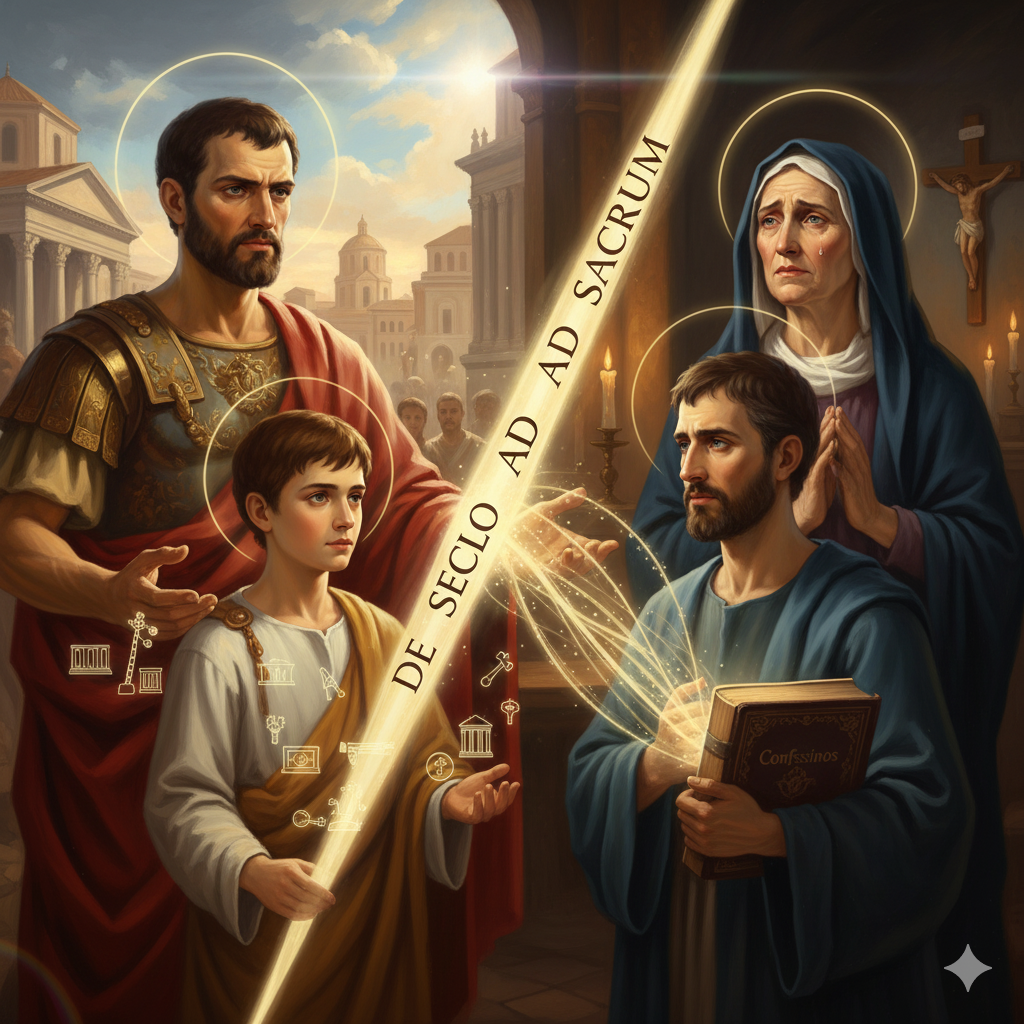Introduction: The Battlefield of the Heart
St. Augustine’s Confessions is the story of a spiritual journey, but every journey begins at home. For Augustine, the household was a place of deep tension, where two radically opposed worldviews confronted each other: the earthly ambition of his father and the eternal devotion of his mother. Understanding the dynamic between Patricius and Monica is crucial to grasping the internal struggle that consumed Augustine for much of his youth.
At Eternal Man Publisher, we see Augustine's home not just as a setting, but as the mirror of his spiritual crisis.
Patricius: The World and Secular Ambition
Patricius was a municipal official in Thagaste, North Africa. He was, above all, a man of the world: pagan, temperamental, and focused on securing secular success for his intellectually gifted son.
-
The Value of Rhetoric: Patricius's greatest gift to Augustine was education. He invested everything so his son could study Rhetoric (the art of persuasion) at the best schools, seeing in oratory the path to fame, wealth, and political influence.
-
Spiritual Indifference: Augustine notes that while Patricius took pride in his son’s talent and even his vices (which he saw as a sign of manliness), he was indifferent to his soul. His concern was success here and now.
Patricius represents the allure of materialism and human recognition—a temptation Augustine struggled to overcome for years.
Monica: Eternity and Christian Devotion
In stark contrast, Monica was the quiet, constant voice of the eternal. Her mission was not her son's success in Rome, but the salvation of his soul.
-
The Power of Patience: Monica endured Patricius's temperament (who only converted on his deathbed, thanks to her perseverance) and Augustine's spiritual wandering. She was the living example of Christian virtue amidst adversity.
-
The Focus Inward: While Patricius saw Augustine as a future famous orator, Monica saw a lost son. Her love was unconditional, but her persistence was strategic, always seeking divine intervention to guide her child.
Monica represents the call to introspection and a greater purpose—the seed of faith that Augustine tried to smother with philosophy and pleasure.
The Effect on Young Augustine
The conflict between Patricius and Monica was not just external; it was internalized by Augustine. His wandering youth reflects this internal battle:
-
He pursued fame and pleasures (Patricius's path), dominating rhetoric.
-
But he was irremediably restless (Monica's call), unable to find peace in temporary glories.
Augustine’s conversion was only possible when he finally rejected Patricius's worldview and fully embraced Monica's vision. The Confessions serve as his memorial both to the mother who saved him and to the life he left behind.
Every struggle for truth begins with fundamental choices. The Confessions showcase Augustine's choice between two inheritances.
Understand how Augustine's complex family dynamic led to his extraordinary enlightenment. Acquire your edition of Confessions of St. Augustine from Eternal Man Publisher and analyze the sources of his crisis and triumph.
Click here and purchase: https://eternalmanpublisher.com/products/saint-augustine?variant=47621813862650
